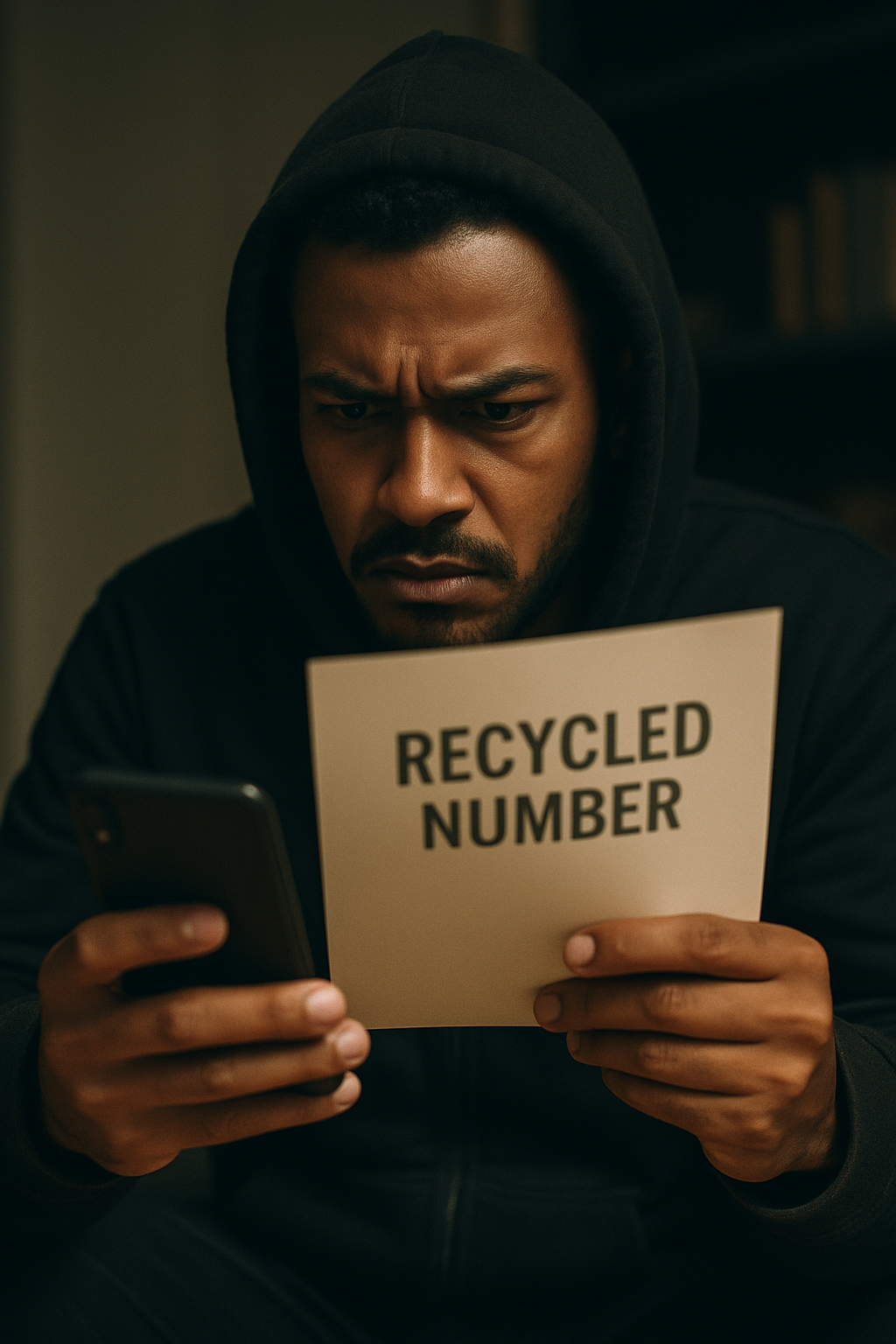
PHILIPSBURG — In an eye-opening post that has gone viral among local professionals and privacy advocates, St. Maarten’s own financial expert Emilio Kalmera has raised serious concerns about an overlooked digital security threat: recycled phone numbers.
In a powerful and deeply personal article titled “Recycled Phone Numbers: The Silent Security Crisis Nobody’s Talking About,” published on his Facebook page, Kalmera describes how he nearly sent sensitive legal documents to a total stranger — simply because his friend’s former phone number had been reassigned by a telecom provider without any form of notice.
“They regulate everything under the sun in the name of security and compliance — FATCA, UBO laws, endless KYC demands — but when it comes to something as basic as protecting your phone number, they’re silent,” Kalmera wrote.
A Personal Wake-Up Call
Kalmera recounts a real-life scenario where he mistakenly messaged a former number belonging to a friend, only to be told: “Hey brother, wrong number.” The situation became more alarming when he was on the verge of sending confidential documents related to a UBO (Ultimate Beneficial Owner) registration — a legally sensitive process — to what turned out to be a complete stranger.
Only after contacting his friend via a different number did he realize the original number had been recycled.
A Digital Identity Crisis
The implications of number recycling are severe. Modern phone numbers serve as digital identifiers — not only for personal communication, but also for logging into banking apps, authenticating cryptocurrency wallets, receiving government verification codes, and conducting business correspondence.
“Your phone number today is more than digits,” Kalmera warns. “It’s a login key, a verification tool, and a bridge to your personal and professional network.”
This risk is not hypothetical. In 2023, a bank account in Ohio was drained of $24,000 after a recycled number received two-factor authentication codes intended for the previous owner.
Unregulated Risk
Kalmera questions why telecom companies are allowed to recycle numbers without notification, especially when those numbers may still be linked to active accounts or security protocols. Meanwhile, governments heavily enforce compliance laws like FATCA, UBO declarations, and KYC regulations — requiring citizens and businesses to jump through hoops in the name of transparency and fraud prevention.
“We’re forced to prove our identity to everyone — except the companies that control the keys to it,” Kalmera argues.
A Call to Action
Kalmera doesn’t stop at identifying the problem. He lays out five practical solutions to mitigate the risks of number recycling:
- Mandatory Deactivation Warnings from telcos before recycling numbers.
- Longer Recovery Windows via a global retired number database.
- Opt-Out Options for business or high-risk users.
- Regulatory Oversight from agencies like the FCC and GDPR.
- User Education on avoiding prepaid numbers for sensitive transactions and updating 2FA information.
“This isn’t just a telco issue anymore — it’s a digital identity issue,” Kalmera concludes. “We need real-world security standards, not just more bureaucracy targeting the small guy while leaving gaping loopholes for serious breaches.”
Local Relevance
As digital services, online banking, and app-based transactions become increasingly common in St. Maarten and across the Caribbean, Kalmera’s warning hits home for individuals, businesses, and regulators alike. His timely post is a wake-up call for local telecom providers and policy-makers to revisit outdated practices and consider stronger safeguards around number reassignment.
StMaartenNews.com applauds Emilio Kalmera for bringing this silent but serious security threat to public attention and encourages dialogue among all stakeholders to address this gap in our digital infrastructure.
—
Have you experienced number recycling or a security scare? Share your story with us at news@stmaartennews.com.
🔒 Afterword: A Digital Nomad’s Wake-Up Call
Emilio Kalmera’s warning struck a chord with many readers, including digital nomad Myriam Haar, who shared her own experience in response to the article.
“That experience by Emilio opened my eyes to something that happened to me only yesterday,” Haar revealed.
“I have a very specific WhatsApp number that’s not related to my local SIMs. As a nomad, I often change numbers while moving from country to country. In Asia, telcos typically recycle inactive numbers after just three months. But my WhatsApp number has remained constant, and I never gave it much thought — until now.”
She recalls receiving an unexpected WhatsApp message from an agency in India. She hadn’t shared her number with them — yet they had it.
“Now I know how. Thank you for the warning.”
Haar’s concern goes deeper. She questions whether recycled numbers might be used to breach digital banking systems, even those protected by two-factor authentication (2FA). Despite added safeguards like fingerprint access, she notes that many 2FA systems also rely on passwords — and if a recycled number is linked to a bank account, hackers may gain entry.
“This could also explain how my nomadic friend lost thousands of dollars from her bank account. The bank never explained how it happened and offered no refund. That tells me they’re aware of scams involving recycled numbers — but aren’t talking about it.”
In response, Haar says she now blocks her bank cards by default and only activates them when needed. It’s a small measure of control in a digital landscape that increasingly feels like it’s “hanging by a hair.”
Her story is a sobering reminder that this isn’t just a technical glitch — it’s a real-world threat affecting people’s lives and livelihoods. As Myriam Haar concludes:
“We need to rethink what security really means in a mobile, digital world.”
###
ADVERTISEMENT












